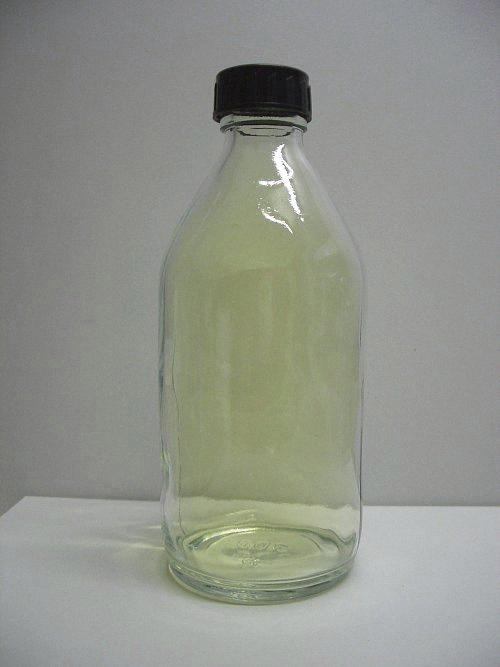Chlorine gas is a highly toxic and reactive gas that can cause serious harm to human health. It is commonly used in industrial and household cleaning products, as well as in water treatment plants. However, exposure to chlorine gas can be deadly if proper precautions are not taken.
The speed at which chlorine gas can kill a person depends on the concentration and duration of exposure. At low concentrations (1 to 10 ppm), chlorine gas can cause eye and nasal irritation, sore throat, and coughing. These symptoms may not be immeditely apparent and can take hours to develop.
Inhalation of higher concentrations of chlorine gas (>15 ppm) can rapidly lead to respiratory distress with airway constriction and accumulation of fluid in the lungs (pulmonary edema). This can cause severe difficulty breathing, coughing, chest pain, and wheezing. In some cases, exposure to high concentrations of chlorine gas can lead to death within minutes.
It is important to note that even short-term exposure to high concentrations of chlorine gas can cause long-term health problems, including respiratory damage, chronic cough, and asthma. Therefore, it is crucial to take proper precautions when working with or near chlorine gas.
If you notice a pungent smell after mixing household cleaners, you should immediately leave the area and try to breathe in fresh air. If you or somebody you know notice any symptoms of chlorine gas poisoning, it’s a good idea to immediately call 911 or the National Poison Control Center at 800-222-1222.
Chlorine gas is a highly toxic and reactive gas that can cause serious harm to human health. The speed at which it can kill a person depends on the concentration and duration of exposure. It is crucial to take proper precautions when working with or near chlorine gas to prevent any harm or long-term health problems.
The Effects of Inhaling Chlorine Gas
Exposure to low concentrations of chlorine gas, typically ranging from 1 to 10 parts per million (ppm), can cause a variety of harmful effects on the respiratory system. When inhaled, chlorine gas can cause irritation to the eyes, nose, and throat, leading to symptoms such as coughing, sore throat, and nasal irritation.
It is important to note that the severity of thee symptoms can vary depending on the individual’s level of exposure and sensitivity to chlorine gas. Some people may experience more severe symptoms than others, even when exposed to the same concentration of chlorine gas.
Additionally, prolonged exposure to low levels of chlorine gas can lead to chronic respiratory problems, such as bronchitis and asthma, especially in individuals with pre-existing respiratory conditions.
In the case of higher concentrations of chlorine gas (>15 ppm), the effects can be much more severe and potentially life-threatening. Inhalation of high concentrations of chlorine gas can rapidly lead to respiratory distress, with airway constriction and accumulation of fluid in the lungs (pulmonary edema).
Symptoms of acute chlorine gas exposure at high concentrations can include coughing, wheezing, chest tightness, difficulty breathing, and a burning sensation in the throat and chest. In severe cases, exposure to high levels of chlorine gas can cause rapid onset of pulmonary edema, which can be fatal if left untreated.
It is important to seek medical attention immediately if you suspect you have been exposed to chlorine gas, regardless of the level of exposure. Medical professionals can provide treatment and support to help alleviate symptoms and prevent further complications.

Source: en.wikipedia.org
What to Do If Accidentally Making Chlorine Gas
Accidentally making chlorine gas can be a dangerous situation that requires immediate action. Chlorine gas is a toxic substance that can cause serious health problems when inhaled. If you notice a pungent smell after mixing household cleaners, it’s important to act quickly to ensure your safety and the safety of those around you.
Here are the steps you should take if you accidentally make chlorine gas:
1. Leave the area immediately- If you notice a strong smell after mixing household cleaners, you should immedately leave the area. Chlorine gas can cause coughing, breathing difficulties, and chest pain. If you’re experiencing any of these symptoms, it’s important to seek fresh air right away.
2. Breathe in fresh air- Once you’re outside, take deep breaths of fresh air. This will help to clear your lungs of any chlorine gas that you may have inhaled.
3. Call for help- If you or somebody you know is experiencing symptoms of chlorine gas poisoning, it’s important to call 911 or the National Poison Control Center (NCPC) at 800-222-1222. They will provide you with guidance on what to do next.
4. Seek medical attention- If you’re experiencing severe symptoms or have been exposed to a significant amount of chlorine gas, it’s important to seek medical attention right away. Chlorine gas exposure can cause serious health problems if left untreated.
5. Avoid mixing household cleaners- To prevent accidentally making chlorine gas in the future, it’s important to avoid mixing household cleaners. Read the labels on cleaning products carefully and follow the instructions for use.
Accidentally making chlorine gas can be a dangerous situation that requires immediate action. If you notice a strong smell after mixing household cleaners, leave the area immediately, breathe in fresh air, call for help, seek medical attention if necessary, and avoid mixing household cleaners in the future.
Conclusion
Exposure to chlorine gas can have severe health consequences, ranging from mild irritation to life-threatening respiratory distress. It is essential to take precautions when using household cleaners that contain chlorine, such as avoiding mixing them with other substances and ensuring proper ventilation. If you or someone you know experiences symptoms of chlorine gas poisoning, it is crucial to seek immediate medical attention. By being aware of the potential risks of chlorine gas and taking preventative measures, we can help ensure our safety and well-being.
